- Home
- Heather Graham
Captive
Captive Read online
SAVAGE…
He moved. Striding toward her, where she lay.
She leaped up at last, standing defensively beside the bed. But it made no difference. He reached out for her, caught her wrist, wrenched her into his arms. His chest was bare and she felt the fevered heat of it burning through the thin white fabric of her nightdress.
“You’ve no right,” she began brokenly. “You can’t come here like this—”
But he had. And he didn’t speak a word, just captured her face between his two palms, found her lips with his own. Forceful, passionate.
Savage …
“You were just in my room,” he told her huskily. “What did you come for?”
“To say good-bye,” she whispered.
“No. The truth.”
“I came …”
“For me. For this…” His mouth covered hers again. Demanding, heated, passionate, undeniable.
Give a gift to yourself or someone you love…
A Magical
Christmas
Heather
Graham
On sale in October in a beautiful Topaz hardcover edition. Be sure to look for it at your favorite store and enjoy an additional special bonus gift of a free paperback of your choice with the purchase of A Magical Christmas
Heather
Graham
CAPTIVE
A TOPAZ BOOK
TOPAZ
Published by the Penguin Group
Penguin Books USA Inc., 375 Hudson Street,
New York, New York 10014, U.S.A.
Penguin Books Ltd, 27 Wrights Lane.
London W8 5TZ, England
Penguin Books Australia Ltd. Ringwood,
Victoria. Australia
Penguin Books Canada Ltd, 10 Alcorn Avenue,
Toronto, Ontario, Canada M4V 3B2
Penguin Books (N.Z.) Ltd, 182-190 Wairau Road,
Auckland 10, New Zealand
Penguin Books Ltd, Registered Offices:
Harmondsworth, Middlesex, England
First published by Topaz, an imprint of Dutton Signet,
a division of Penguin Books USA Inc.
First Printing, August, 1996
10 9 8 7 6 5 4 3 2 1
Copyright © Heather Graham Pozzessere, 1996
All rights reserved
EISBN: 9781101576052
Topaz Man photo © Charles William Bush
REGISTERED TRADEMARK—MARCA REGISTRADA
Printed in the United States of America
Without limiting the rights under copyright reserved above, no part of this publication may be reproduced, stored in or introduced into a retrieval system, or transmitted, in any form, or by any means (electronic, mechanical, photocopying, recording, or otherwise), without the prior written permission of both the copyright owner and the above publisher of this book.
BOOKS ARE AVAILABLE AT QUANTITY DISCOUNTS WHEN USED TO PROMOTE PRODUCTS OR SERVICES, FOR INFORMATION PLEASE WRITE TO PREMIUM MARKETING DIVISION. PENGUIN BOOKS USA INC., 375 HUDSON STREET. NEW YORK. NEW YORK 10014.
If you purchased this book without a cover you should be aware that this book is stolen property. It was reported as “unsold and destroyed” to the publisher and neither the author nor the publisher has received any payment for this “stripped book.”
To Kate and Chris Ryan, Linda and Dean Ryan, Sharon Spiak and Carl Litwin, and Kathryn Falk and Kenneth Rubin—thanks for lobster at Chum-ley’s, steak at Le Bar Bar, brown beer at Jekyll & Hyde, coin-op machine parties, and so many other great times. Thanks for making business pleasure, and for giving me one more reason to be so very grateful for what I do for a living.
CAPTIVE
Table of Content
Prologue
Chapter 1
Chapter 2
Chapter 3
Chapter 4
Chapter 5
Chapter 6
Chapter 7
Chapter 8
Chapter 9
Chapter 10
Chapter 11
Chapter 12
Chapter 13
Chapter 14
Chapter 15
Chapter 16
Chapter 17
Chapter 18
Chapter 19
Chapter 20
Chapter 21
Chapter 22
Chapter 23
Chapter 24
Chapter 25
Chapter 26
Chapter 27
Chapter 28
Epilogue
Prologue
The Hostage
The Florida Territory
Early fall, 1837
She was dead. Almost dead. So close to dead that she could nearly taste the metallic silver of the blade that threatened her throat, feel the hot stickiness and choke on the pulsing red spill of her own blood …
But then a harsh, deep cry went out, shattering the air. The warrior about to murder her paused. The blade did not touch her throat. The cry, the shout of command that had broken through the carnage, had been so fierce that it stilled even the jubilant sounds of pillage, murder, and glory from the savages who had so recently won their battle and now set upon their victims, some stealing rings and trinkets, some giving the coup de grace to maimed and anguished men, some seeking murder, some seeking scalps.
The shouted cry stopped them all. It had all been cacophony; the day was suddenly and incredibly still. Teela stared up at the warrior, who seemed to have frozen in motion. A fierce warrior, one with blunt-cut ink black hair, an all but naked bear-greased body, and mahogany eyes that impaled her with hatred One who had wanted her life. She stared back at him, hating him equally.
Enough. She didn’t know quite what was going on—why the sudden ringing command of one warrior should stop this carnage—but she had endured enough. She’d not been part of a U.S. Army war party. She had only been on her way to leave this savage place. So savage, even in its beauty. Even now, as the sun fell, the sky was streaked with a rainbow of golden colors, yellows, oranges, crimson. The sun would fall soon, and the moon and the stars would rise and cool breezes would blow away the heat.
And she would most probably still die as the darkness blanketed the wild, raw, beautiful land …
Perhaps she was in this wretched danger because most of her escort had been chosen from men who had often served beneath her stepfather—hardened, ruthless soldiers who had prowled these swamps for endless months now, and battled the Seminoles and others on their own wild lands. Not perhaps—most certainly it was so. Few whites were hated by the Indians as much as Michael Warren. That hatred extended to the men who served him.
And, so it seemed, to his daughter.
And perhaps she knew full well in her heart that the soldiers had often been as cruel and rapacious as any “red” man could be. Perhaps she could not even blame the Indians for their hatred of her father and anything and anyone that he had touched.
But she had brought them no harm. And a few of the men on this escort service had been nothing more than green boys, too young, too innocent, to deserve such a death in the wilderness. Dear God, she did not deserve such a death in the wilderness!
“Bastard!” she cried suddenly to the warrior who still held her by the waves of her hair. She kicked into his gut and groin with all of her strength, desperate to be freed from him, even if it would be for nothing more than the last few seconds in which she might draw breath.
He gave out a cry. A furious cry of deep masculine pain, and to her relief and fleeting pleasure, his hand eased its death grip from her hair as he doubled over with pain.
She tried to rise from the place where she had fallen against a cypress. Tried to run. But the Indian was screaming again, reaching for her. Her arm was caught, and she was thrown back to the ground. The brave’s knife,
already deep, dark red with the life’s blood of so many of the men who had fallen around her, was rising above her breast.
Then that powerful voice of command that had stilled the action of the massacre before rang out again. Even as she blinked and gasped for air, Teela saw that the muscled warrior was wrenched from atop her. She didn’t dare wonder why. She rolled over, struggled to her knees and to her feet, and started to run again. She wouldn’t die without fighting, without trying.
Fingers tangled into the length of her hair. She cried out in agony as she was determinedly dragged back. She struggled fiercely, catching hold of her hair yet not managing to free it from the firm grasp of that large bronzed hand. Even as she tried to kick and flail again, she found herself spun around, plucked up by the waist, and tossed back to the ground. She thought, fighting hysteria, that she was back where she started.
No. This was worse. Much worse.
For this man now straddled her, capturing her wrists, pinning them to the ground high above her head with the use of just one of his wickedly long-fingered hands. She was blinded by the blanket of sun-torched auburn hair that fell in a tangled sheath over her face. Twisting brought the merciless pressure of his thighs closer about her hips. Each gasp for breath, every effort to scream, all but caused her to choke and strangle upon her own hair.
Then it was swept from her face. She felt those fingers stroking her cheeks, sweeping away the wild and tangled strands. She opened her mouth to scream, and yet the sound never left her throat, and for shattering moments, still moments, moments in which she could feel or hear nothing but the pounding of her own heart, she stared into the eyes that seemed to pierce into her and through her, pinning her to the ground with every bit as much strength as the arms and legs that held her so fiercely….
They were blue eyes. Shockingly, vibrantly blue. A blue that could burn cobalt with anger, lighten like a summer’s sky with laughter. A blue that had haunted, compelled, fascinated, and drawn her before, perhaps for the very bronze of the face they shone from within.
Running Bear.
They had a name for him here in the dark green shadows and dangerous rivers of grass in the swamplands. They had a name for him among his people.
One that fitted him, one that had become his on the day he had left childhood behind within his tribe and taken the black drink. It was a fitting name for one who would be both fleet and graceful and powerful as well. She knew about him because she had made a point of knowing about him; her fascination had been complete. Today he was half naked, clad in doeskin breeches, silver necklaces, hide boots, and nothing more. The fantastic, ripple-muscled strength of his chest and shoulders was plainly visible. He wasn’t heavy; she was certain that he would have shared his portion of food with any man, woman, or child of his people in need, but despite that, the raw force used in his expeditions through the land had apparently kept him honed like a razor, and enemy or not, white man, red man, he was an extraordinary example of the male physique. His hair was ebony but rich, and with a wave that betrayed his white heritage, the same as the majestic blue of his eyes. His face combined his races; it was an exceptionally strong face with high, broad cheekbones, a stubbornly squared chin, long, narrow nose, wide, full, sensual lips, high forehead, arched ebony brows, and those eyes.
She closed her own against them, her heart racing. She knew those eyes, knew them too well, had felt their blue fire before.
He was Running Bear now.
But he had been James McKenzie that first night she met him. So savage here with his bared flesh and simple silver adornment. She’d seen him first in a white frilled shirt, black breeches, crimson waistcoat, and black boots. She’d seen him in the white man’s world, seen the elegance of his movement across the dance floor, heard the eloquence of his arguments when he’d spoken. Feminine hearts had fluttered excitedly, for that aspect of danger had somehow remained about him. There was a vitality, a tension, a heat, that seemed barely contained within him. Yet his appearance had been that of a civilized gentleman. Indeed, she had met him as one.
No. He had been neither civil nor a gentleman that night, either. He had taken on the guise, and he had played the white men’s games, and that had been all. And the blue fires had blazed in his eyes because he had raged with bitterness already, for though white guns had not taken his family, a fever caught within the swamps where they had ventured to escape the white settlers had done so with equal precision.
He had hated her that night. Hated her for her father. Yet even then, to his own great horror she was certain, he had …
Wanted her. And no matter how he had infuriated her, she had felt that wretched fascination. Almost beyond her own power, something that compelled her to walk to him when she should have been running away. He wasn’t of her world. Even as she longed to cry out that she wasn’t part of the things her father did, she wanted to hate him for the very way he assumed that she was, despise him for the very contempt he seemed to feel, and cast so ruthlessly her way. But even then—
“Look at me,” he commanded her, and laughter seemed to bubble up within her again, for she was surrounded by savages, some of them half dressed and glistening bronze in the sun, others clad in doeskin breeches and colorful cotton shirts, feathers and ornaments. All of them armed with knives and axes and guns.
And still, his English was so perfect, his voice so cultured. Look at me. He might as well have commanded that she pass the tea.
Her eyes flew open and she met his again, and she wondered if his coming would mean that she should live, or just die more slowly.
Even he couldn’t change the fact of whose stepchild she was, or all that her father had done.
She gritted her teeth hard, fighting the trembling that had seized her. She wouldn’t cower before him! His bitterness had always been great; he had never loved, perhaps he had not even liked, her. He had even hated her, and perhaps himself sometimes, because she had been white. And still, a strange wild fire had burned between them, and she knew that he had been entangled in it as well, and at times even, perhaps, she had drawn his admiration. She had never cowered before him, not yet. She had never betrayed her fear, and she suddenly vowed to herself that she would not do so now.
“So you are a part of a war party. Kill me, then, and have done with it!” she challenged him. “Slaughter me, slice me to ribbons, as your people have done with these men.”
“It was a fair fight,” he warned her, eyes narrowing.
“It was an ambush.”
“The captain leading your party ordered the direct annihilation of two entire tribes, Miss Warren, men, women, and children. Babes still within their mothers’ wombs. Yet to you these soldiers should have been shown mercy?”
“I know there is none within you!” she cried. She hesitated. She knew that he spoke the truth about their captain. She knew it; she had seen him in action. What good did it do now to admit that white men and red were merciless, brutal, and cruel? “There is no mercy to be found in this wretched hell, I am well aware, so do whatever you will! End it!”
He arched a brow, then leaned down closer to her. “End it? But we savages do so enjoy torturing a fiesty victim!”
Her blood seemed very cold. Ice within her. Yet where his body touched hers, it seemed she was still afire. She closed her eyes again, listening as the warriors rummaged through the soldiers’ belongings. They sought food, she knew, above all else. It had been a military tactic to attempt starving the Indians into submission.
“What were you doing with these men?” he demanded.
Her eyes opened again upon that set of blue ones that so determinedly pinned her to the ground as the pillage went on around them. It didn’t matter. She didn’t want to look. He had power among his people. Enough to stop another from carrying out her murder But no chief could stop hungry men from seeking food or whatever other spoils of war they might now seize.
Thank God the darkness was coming to cast its cover over the men who had perished. Over
the Indians who searched the corpses so desperately for any small morsel of sustenance.
She couldn’t even blame them. She’d been ill when she’d first heard her stepfather describe with relish his exploits against the Indians. The Americans who complained of brutal tactics didn’t realize that they dealt with “subhuman” people he believed. The Indian question really needed to be settled permanently. Wretched little Indians grew to be wretched big ones, and they were much more easily dispatched when they were small.
Not all the soldiers were monsters. She’d met many good ones. Fine men, courageous men, kind men. Men who longed to leave the Indians in peace, to learn to live together.
But under the circumstances they would all pay for Colonel Warren’s military prowess, as he described his maneuvers.
“What were you doing with the men?” James repeated angrily.
Her eyes went directly to his. “Leaving,” she told him.
“For where?”
“Charleston.”
He arched a brow again, and she thought that she sensed anger within him. Yes, she’d been running away. She’d had no choice. She’d never be able to make any-one realize that she despised Warren as deeply as any enemy might.
But damn it, since she’d met James, he’d been telling her to go away!
He was suddenly up, on his feet, having pounced there with the speed and agility of a graceful great cat. Again she thought to run, to escape them all, to hide somehow, to make it into the swamp and to St. Augustine. She twisted with her swift speed to rise, but she didn’t even manage to turn. His hands were on hers, drawing her up, suddenly slamming her close to his own body. Once again his eyes knifed into her, impaling her, and had he held her or not, she could not have moved at that moment.
“Fool!” he charged. “You will not be going anywhere now!”
“You’re the one who has always told me to leave,” she reminded him fiercely. “You’d have thrown me off your precious land were it possible. You told me to go—”

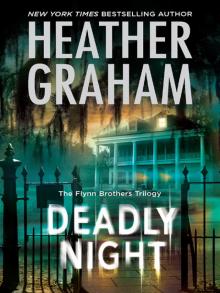 Deadly Night
Deadly Night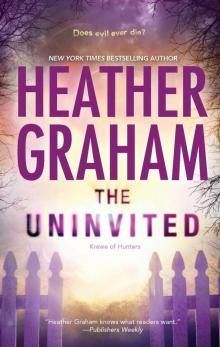 The Uninvited
The Uninvited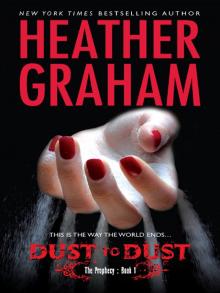 Dust to Dust
Dust to Dust Heart of Evil
Heart of Evil A Perfect Obsession
A Perfect Obsession The Keepers
The Keepers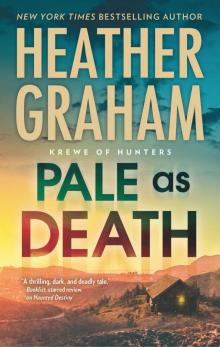 Pale as Death
Pale as Death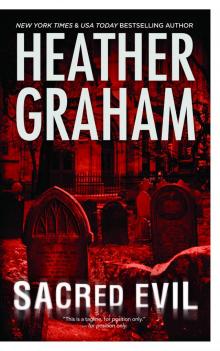 Phantom Evil
Phantom Evil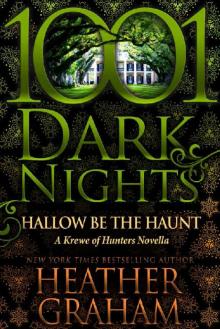 Hallow Be the Haunt
Hallow Be the Haunt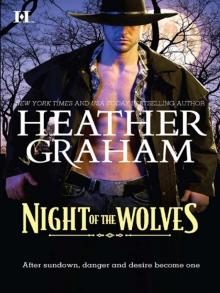 Night of the Wolves
Night of the Wolves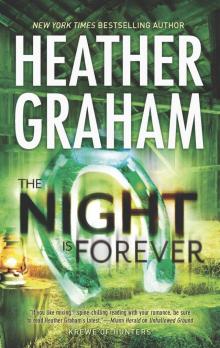 The Night Is Forever
The Night Is Forever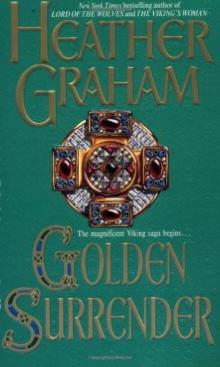 Golden Surrender
Golden Surrender Kiss of Darkness
Kiss of Darkness Beneath a Blood Red Moon
Beneath a Blood Red Moon A Dangerous Game
A Dangerous Game Ghost Shadow
Ghost Shadow Long, Lean, and Lethal
Long, Lean, and Lethal Fade to Black
Fade to Black The Rising
The Rising And One Wore Gray
And One Wore Gray Rebel
Rebel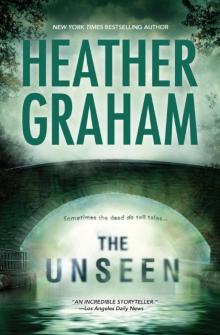 The Unseen
The Unseen The Night Is Watching
The Night Is Watching The Evil Inside
The Evil Inside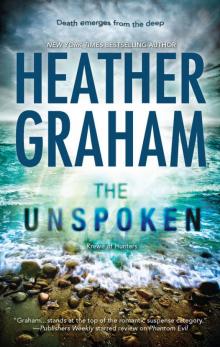 The Unspoken
The Unspoken The Night Is Alive
The Night Is Alive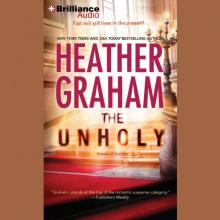 The Unholy
The Unholy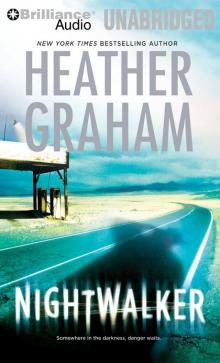 Nightwalker
Nightwalker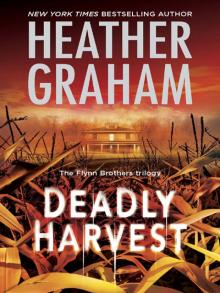 Deadly Harvest
Deadly Harvest An Angel for Christmas
An Angel for Christmas A Pirate's Pleasure
A Pirate's Pleasure American Drifter
American Drifter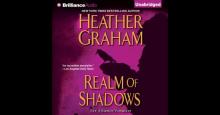 Realm of Shadows
Realm of Shadows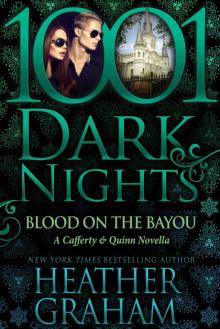 Blood on the Bayou
Blood on the Bayou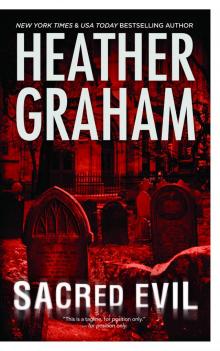 Sacred Evil
Sacred Evil Dying to Have Her
Dying to Have Her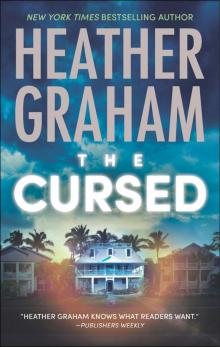 The Cursed
The Cursed Captive
Captive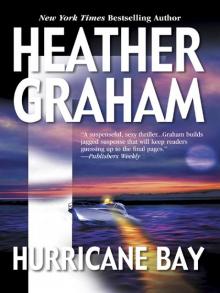 Hurricane Bay
Hurricane Bay Drop Dead Gorgeous
Drop Dead Gorgeous Ghost Memories
Ghost Memories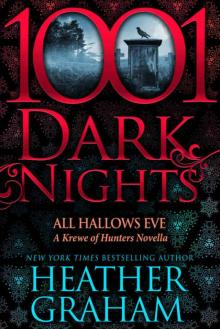 All Hallows Eve
All Hallows Eve Dying Breath
Dying Breath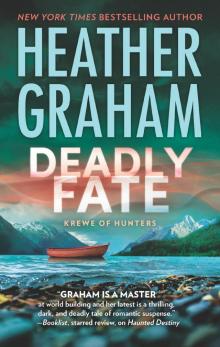 Deadly Fate
Deadly Fate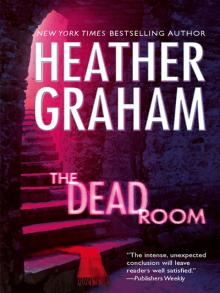 The Dead Room
The Dead Room Lord of the Wolves
Lord of the Wolves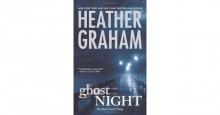 Ghost Night
Ghost Night Ghost Walk
Ghost Walk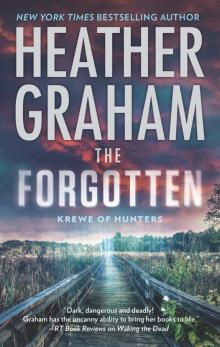 The Forgotten
The Forgotten Unhallowed Ground
Unhallowed Ground One Wore Blue
One Wore Blue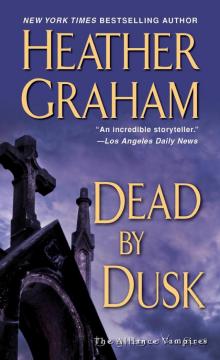 Dead By Dusk
Dead By Dusk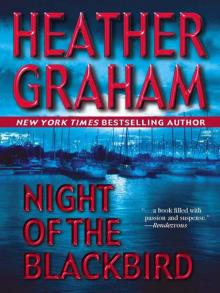 Night of the Blackbird
Night of the Blackbird The Dead Play On
The Dead Play On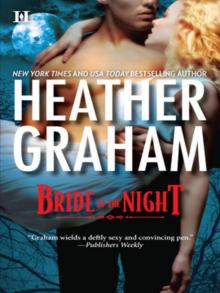 Bride of the Night
Bride of the Night Wicked Deeds
Wicked Deeds The Forbidden
The Forbidden Triumph
Triumph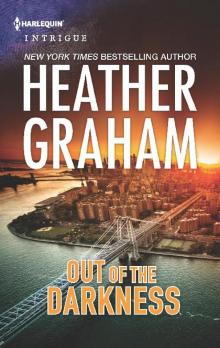 Out of the Darkness
Out of the Darkness Love Not a Rebel
Love Not a Rebel The Last Noel
The Last Noel Tall, Dark, and Deadly
Tall, Dark, and Deadly The Death Dealer
The Death Dealer Dead on the Dance Floor
Dead on the Dance Floor Law and Disorder
Law and Disorder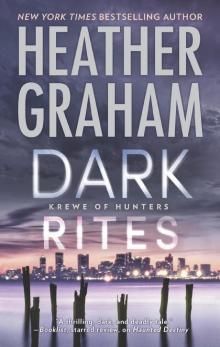 Dark Rites
Dark Rites New Year's Eve
New Year's Eve Hostage At Crystal Manor
Hostage At Crystal Manor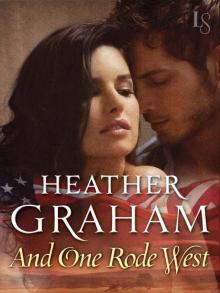 And One Rode West
And One Rode West Home in Time for Christmas
Home in Time for Christmas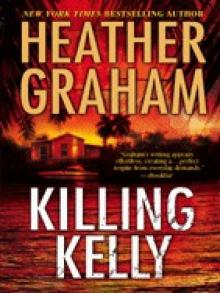 Killing Kelly
Killing Kelly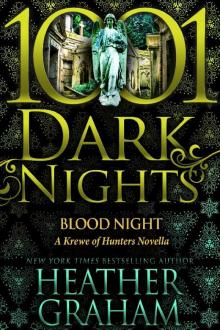 Blood Night
Blood Night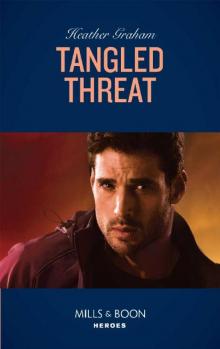 Tangled Threat (Mills & Boon Heroes)
Tangled Threat (Mills & Boon Heroes)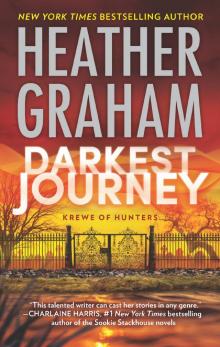 Darkest Journey
Darkest Journey Glory
Glory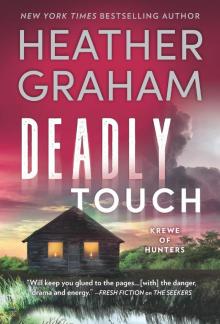 Deadly Touch
Deadly Touch An Unexpected Guest
An Unexpected Guest Night of the Vampires
Night of the Vampires Seize the Wind
Seize the Wind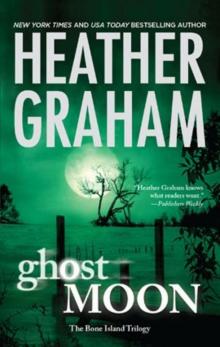 Ghost Moon
Ghost Moon The Vision
The Vision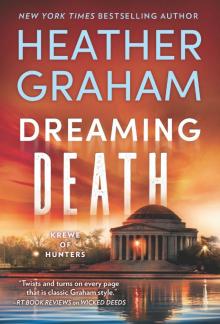 Dreaming Death
Dreaming Death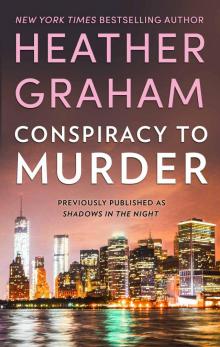 Conspiracy to Murder
Conspiracy to Murder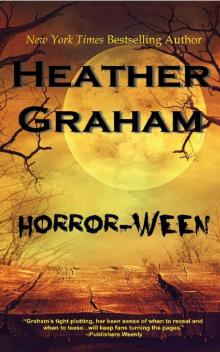 Horror-Ween (Krewe of Hunters)
Horror-Ween (Krewe of Hunters)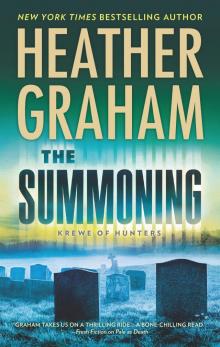 The Summoning
The Summoning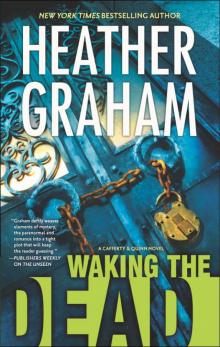 Waking the Dead
Waking the Dead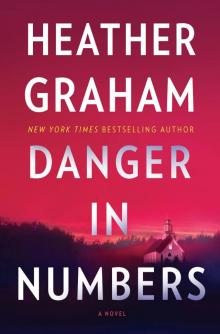 Danger in Numbers
Danger in Numbers The Hidden
The Hidden Sweet Savage Eden
Sweet Savage Eden Tangled Threat ; Suspicious
Tangled Threat ; Suspicious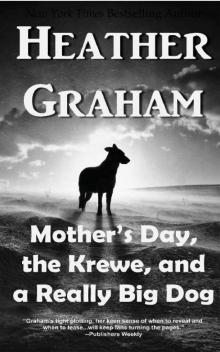 Mother's Day, the Krewe, and a Really Big Dog
Mother's Day, the Krewe, and a Really Big Dog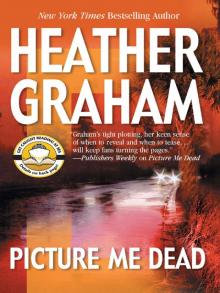 Picture Me Dead
Picture Me Dead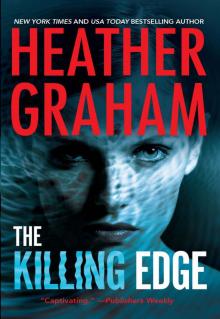 The Killing Edge
The Killing Edge St. Patrick's Day
St. Patrick's Day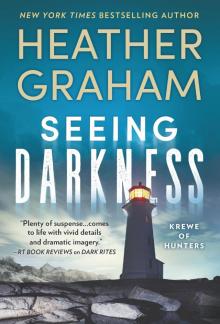 Seeing Darkness
Seeing Darkness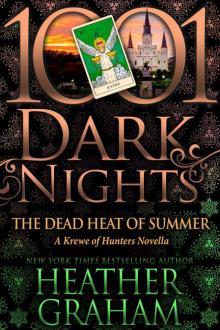 The Dead Heat of Summer: A Krewe of Hunters Novella
The Dead Heat of Summer: A Krewe of Hunters Novella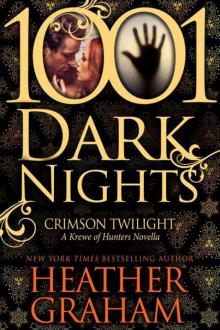 Crimson Twilight
Crimson Twilight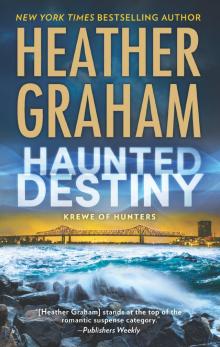 Haunted Destiny
Haunted Destiny Devil's Mistress
Devil's Mistress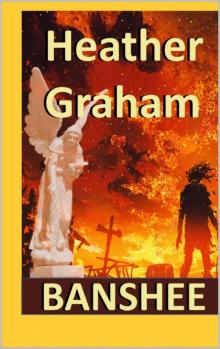 Banshee
Banshee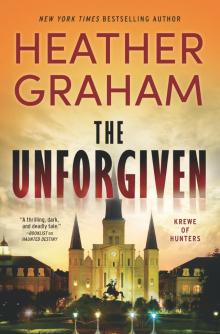 The Unforgiven
The Unforgiven The Final Deception
The Final Deception A Horribly Haunted Halloween
A Horribly Haunted Halloween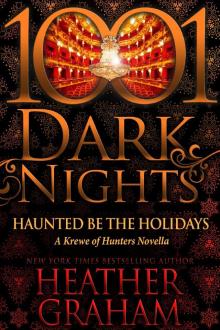 Haunted Be the Holidays
Haunted Be the Holidays Deadly Gift
Deadly Gift Easter, the Krewe and Another Large White Rabbit
Easter, the Krewe and Another Large White Rabbit Haunted
Haunted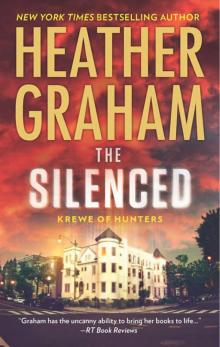 The Silenced
The Silenced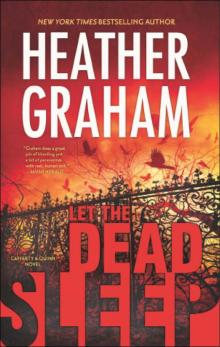 Let the Dead Sleep
Let the Dead Sleep Christmas, the Krewe, and Kenneth
Christmas, the Krewe, and Kenneth Big Easy Evil
Big Easy Evil Sinister Intentions & Confiscated Conception
Sinister Intentions & Confiscated Conception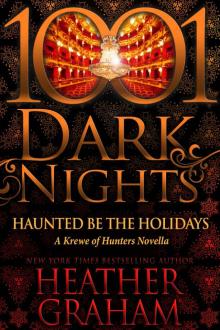 Haunted Be the Holidays: A Krewe of Hunters Novella
Haunted Be the Holidays: A Krewe of Hunters Novella Blood Red
Blood Red A Perilous Eden
A Perilous Eden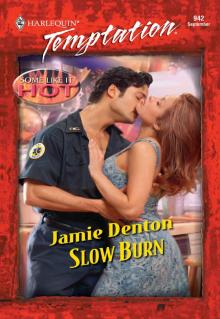 Slow Burn
Slow Burn Strangers In Paradise
Strangers In Paradise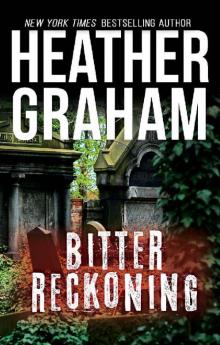 Bitter Reckoning
Bitter Reckoning Krewe of Hunters, Volume 1: Phantom Evil ; Heart of Evil ; Sacred Evil ; The Evil Inside
Krewe of Hunters, Volume 1: Phantom Evil ; Heart of Evil ; Sacred Evil ; The Evil Inside Do You Fear What I Fear?
Do You Fear What I Fear? The Face in the Window
The Face in the Window Krewe of Hunters, Volume 3: The Night Is WatchingThe Night Is AliveThe Night Is Forever
Krewe of Hunters, Volume 3: The Night Is WatchingThe Night Is AliveThe Night Is Forever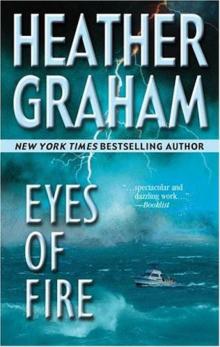 Eyes of Fire
Eyes of Fire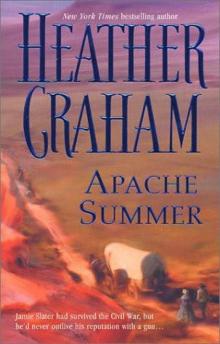 Apache Summer sb-3
Apache Summer sb-3 Sensuous Angel
Sensuous Angel In the Dark
In the Dark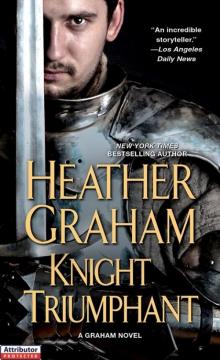 Knight Triumphant
Knight Triumphant Hours to Cherish
Hours to Cherish Tender Deception
Tender Deception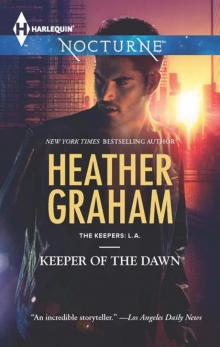 Keeper of the Dawn tkl-4
Keeper of the Dawn tkl-4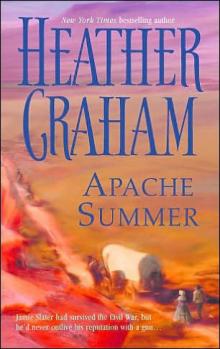 Apache Summer
Apache Summer Between Roc and a Hard Place
Between Roc and a Hard Place Echoes of Evil
Echoes of Evil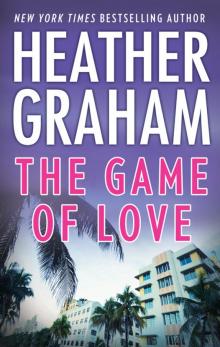 The Game of Love
The Game of Love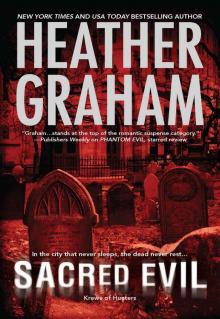 Sacred Evil (Krewe of Hunters)
Sacred Evil (Krewe of Hunters) Bougainvillea
Bougainvillea Tender Taming
Tender Taming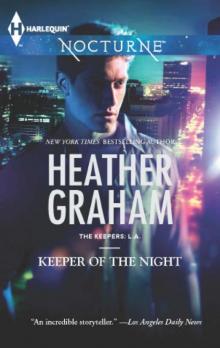 Keeper of the Night (The Keepers: L.A.)
Keeper of the Night (The Keepers: L.A.)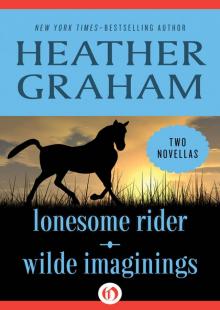 Lonesome Rider and Wilde Imaginings
Lonesome Rider and Wilde Imaginings Lucia in Love
Lucia in Love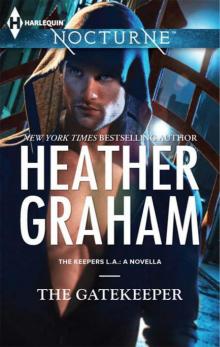 The Gatekeeper
The Gatekeeper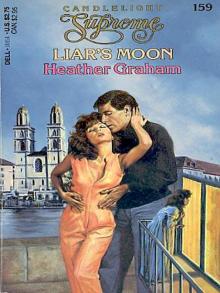 Liar's Moon
Liar's Moon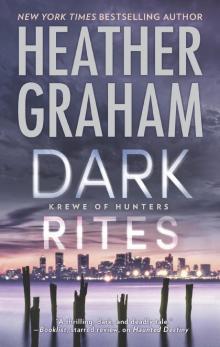 Dark Rites--A Paranormal Romance Novel
Dark Rites--A Paranormal Romance Novel A Season for Love
A Season for Love Krewe of Hunters, Volume 6: Haunted Destiny ; Deadly Fate ; Darkest Journey
Krewe of Hunters, Volume 6: Haunted Destiny ; Deadly Fate ; Darkest Journey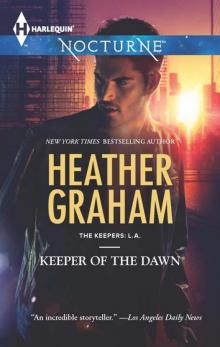 Keeper of the Dawn (The Keepers: L.A.)
Keeper of the Dawn (The Keepers: L.A.)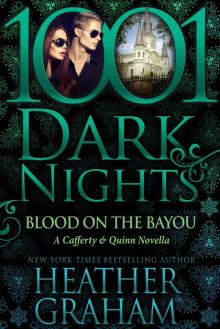 Blood on the Bayou: A Cafferty & Quinn Novella
Blood on the Bayou: A Cafferty & Quinn Novella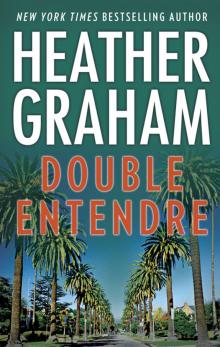 Double Entendre
Double Entendre A Perfect Obsession--A Novel of Romantic Suspense
A Perfect Obsession--A Novel of Romantic Suspense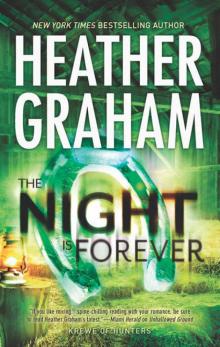 The Night Is Forever koh-11
The Night Is Forever koh-11 The Di Medici Bride
The Di Medici Bride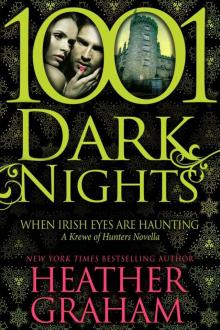 When Irish Eyes Are Haunting: A Krewe of Hunters Novella
When Irish Eyes Are Haunting: A Krewe of Hunters Novella The Keepers: Christmas in Salem: Do You Fear What I Fear?The Fright Before ChristmasUnholy NightStalking in a Winter Wonderland (Harlequin Nocturne)
The Keepers: Christmas in Salem: Do You Fear What I Fear?The Fright Before ChristmasUnholy NightStalking in a Winter Wonderland (Harlequin Nocturne)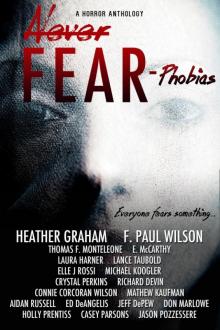 Never Fear
Never Fear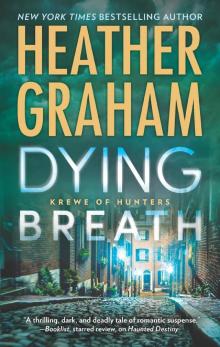 Dying Breath--A Heart-Stopping Novel of Paranormal Romantic Suspense
Dying Breath--A Heart-Stopping Novel of Paranormal Romantic Suspense If Looks Could Kill
If Looks Could Kill This Rough Magic
This Rough Magic Heather Graham's Christmas Treasures
Heather Graham's Christmas Treasures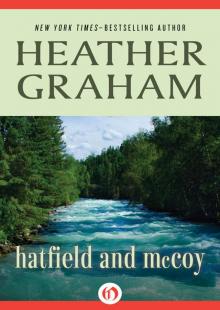 Hatfield and McCoy
Hatfield and McCoy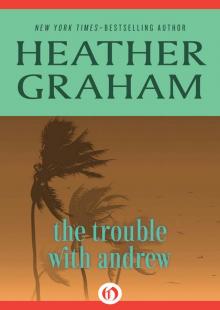 The Trouble with Andrew
The Trouble with Andrew Never Fear - The Tarot: Do You Really Want To Know?
Never Fear - The Tarot: Do You Really Want To Know?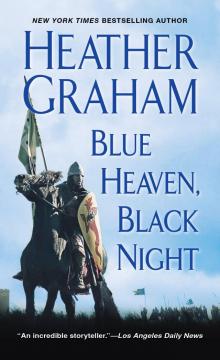 Blue Heaven, Black Night
Blue Heaven, Black Night Forbidden Fire
Forbidden Fire Come the Morning
Come the Morning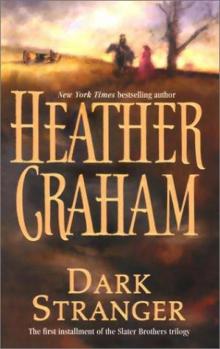 Dark Stranger sb-4
Dark Stranger sb-4 Lie Down in Roses
Lie Down in Roses Red Midnight
Red Midnight Krewe of Hunters Series, Volume 5
Krewe of Hunters Series, Volume 5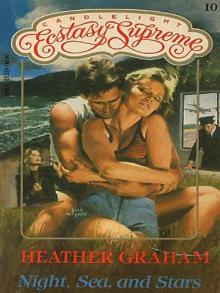 Night, Sea, And Stars
Night, Sea, And Stars Snowfire
Snowfire Quiet Walks the Tiger
Quiet Walks the Tiger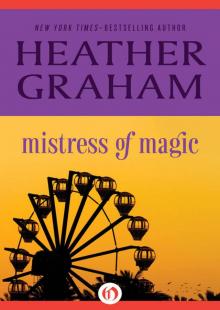 Mistress of Magic
Mistress of Magic For All of Her Life
For All of Her Life Runaway
Runaway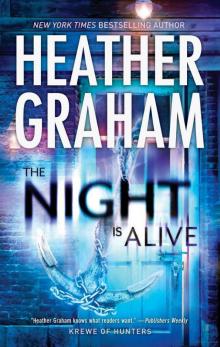 The Night Is Alive koh-10
The Night Is Alive koh-10 The Evil Inside (Krewe of Hunters)
The Evil Inside (Krewe of Hunters)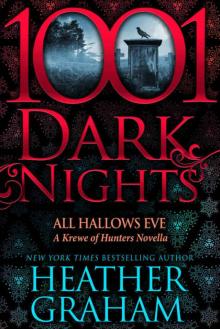 All Hallows Eve: A Krewe of Hunters Novella (1001 Dark Nights)
All Hallows Eve: A Krewe of Hunters Novella (1001 Dark Nights) Tomorrow the Glory
Tomorrow the Glory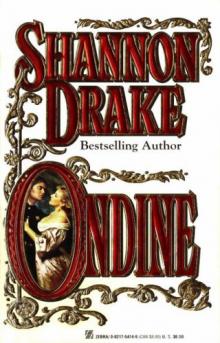 Ondine
Ondine Angel of Mercy & Standoff at Mustang Ridge
Angel of Mercy & Standoff at Mustang Ridge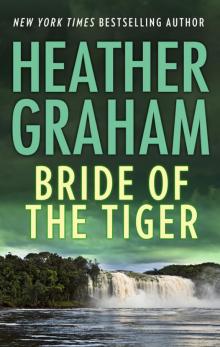 Bride of the Tiger
Bride of the Tiger When Next We Love
When Next We Love Heather Graham Krewe of Hunters Series, Volume 4
Heather Graham Krewe of Hunters Series, Volume 4 A Season of Miracles
A Season of Miracles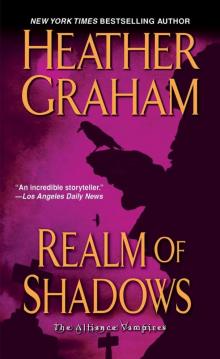 Realm of Shadows (Vampire Alliance)
Realm of Shadows (Vampire Alliance) When We Touch
When We Touch Serena's Magic
Serena's Magic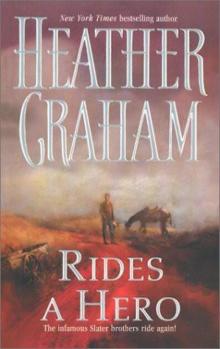 Rides a Hero sb-2
Rides a Hero sb-2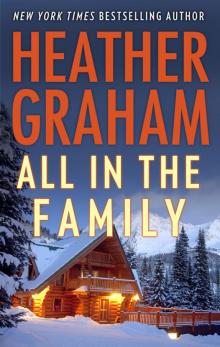 All in the Family
All in the Family Handful of Dreams
Handful of Dreams A Stranger in the Hamptons
A Stranger in the Hamptons Krewe of Hunters, Volume 2: The Unseen ; The Unholy ; The Unspoken ; The Uninvited
Krewe of Hunters, Volume 2: The Unseen ; The Unholy ; The Unspoken ; The Uninvited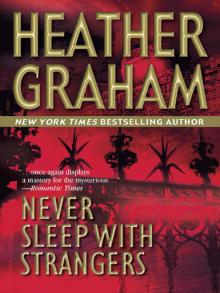 Never Sleep With Strangers
Never Sleep With Strangers Eden's Spell
Eden's Spell A Magical Christmas
A Magical Christmas Forever My Love
Forever My Love King of the Castle
King of the Castle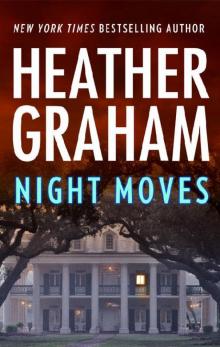 Night Moves (60th Anniversary)
Night Moves (60th Anniversary) The Island
The Island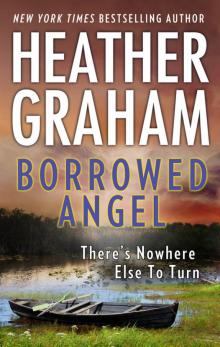 Borrowed Angel
Borrowed Angel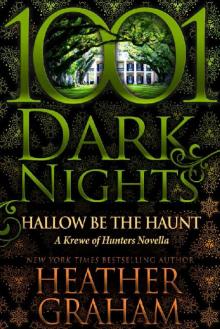 Hallow Be the Haunt: A Krewe of Hunters Novella
Hallow Be the Haunt: A Krewe of Hunters Novella Why I Love New Orleans
Why I Love New Orleans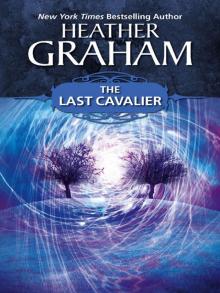 The Last Cavalier
The Last Cavalier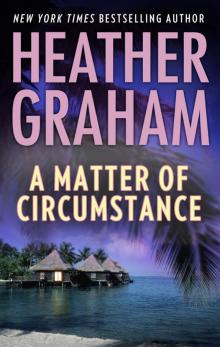 A Matter of Circumstance
A Matter of Circumstance Heather Graham's Haunted Treasures
Heather Graham's Haunted Treasures Tempestuous Eden
Tempestuous Eden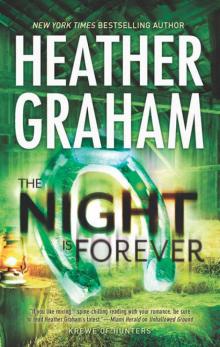 Krewe 11 - The Night Is Forever
Krewe 11 - The Night Is Forever